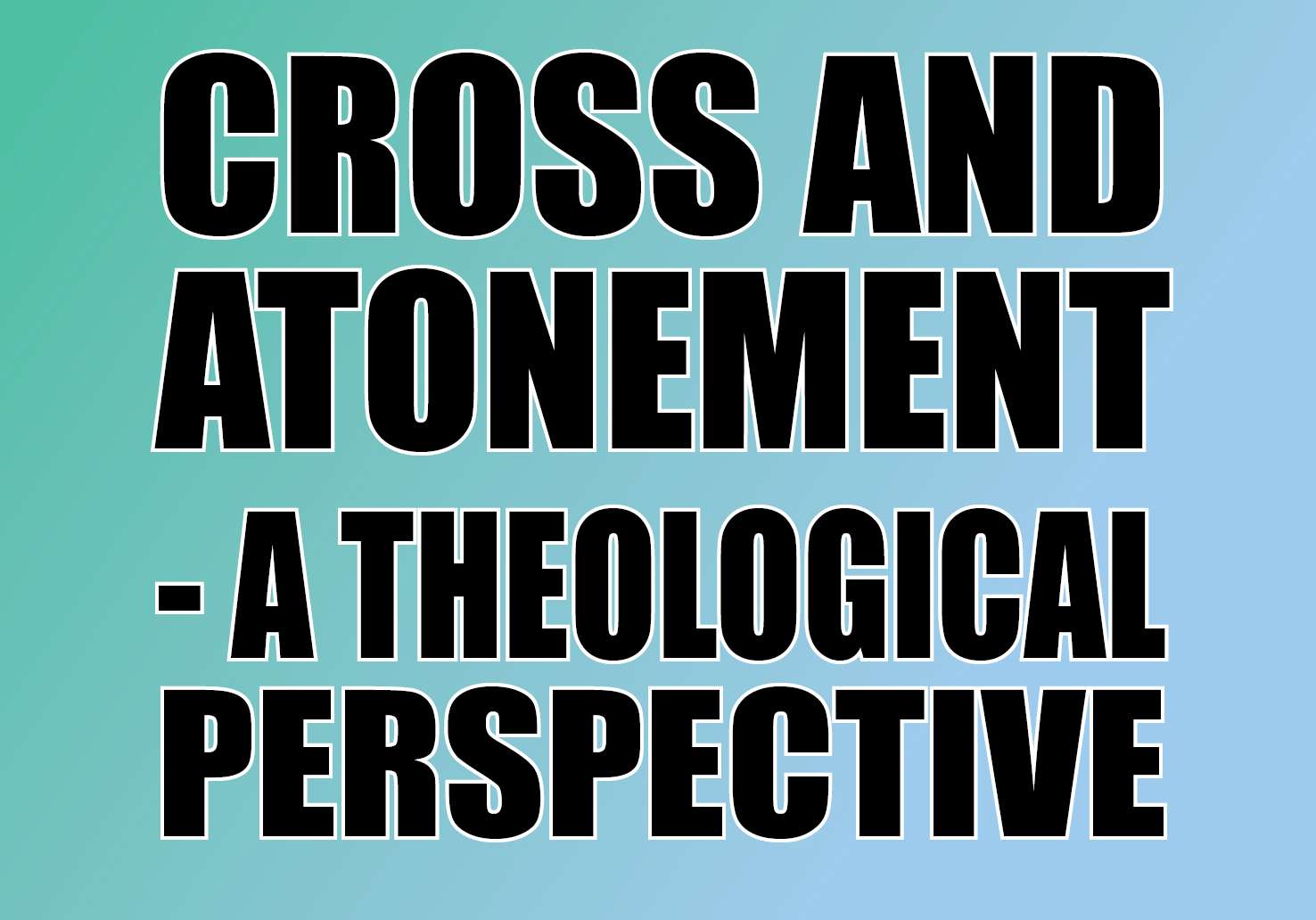

Reason and Responsibility in the Midst of Raging Pandemic
Dr. Domenic Marbaniang
For many of us, it has been around 5 months since we were restricted to our houses. This is something which the world has never seen before, especially on such a global scale. The current situation is not much different from what Jeremiah observed during his days: “...Children no longer play in the streets, and young men no longer gather in the squares” (Jer.9:21, NLT). The pandemic has affected the world socially, politically, and economically. The International Labour Organization reported that around 1.6 billion people (160 crores), nearly half of the global workforce, could lose jobs and see their livelihood destroyed due to the lockdowns imposed. Over 323,000 people have died from the virus; the actual count might be higher. There is an atmosphere of fear and worry everywhere.
We are facing challenges at every level: personal, family, social, national, international. The challenge is great for the most vulnerable, especially children and elderly. The challenge is also great for professionals, especially medical staff, working on the frontline. The challenge at home is not the least as many struggle to find ways to cope with the need to balance job-work (or search for work), child-care, self-care, and house-work. Various news agencies have reported a rise in divorce inquiries during the lockdown period predicting an alarming surge of broken families as couples break down under the pressure of challenges they were unprepared for and are unable to cope with the “shortcomings” of each other.
As death and darkness sweeps the surface of the world, the call on the Christian to shine forth God’s light and spread the fragrance of His life in more meaningful ways is even greater. So, let’s meditate on some ways in which we can do that.
Fragrance of His Goodness
We must be assured of the constant, consistent, and incessant goodness of God, and this must motivate us unto all good works thus spreading the fragrance of God’s goodness in the world.
Belief in God’s goodness might not seem easy when life becomes difficult. But, the psalmist reminds us that without faith in the goodness of God, life would become unlivable (Psalm 27:13). A central issue in the philosophy of religion is known as the problem of evil or theodicy. Its key concern is how the goodness of an omnipotent God can be compatible with the fact of evil in the world. The basic contention is that if God is good and is also all-powerful, evil should have no place in His creation. But, if there is something like morality, then there must necessarily also be a supreme moral ruler who must be essentially good, or else He would be disqualified from being a moral ruler, which in turn would defeat the very possibility of morality making the question of evil nonsensical. Thus, if one concedes that good and evil are real, then one must also necessarily concede that the moral law-giver, God, is perfect. If God were evil, immorality would be the norm and morality would be depreciated; which is not the case. Therefore, intellectually it is self-defeating to deny the goodness of God in face of the problem of evil. Then, how do we explain suffering and pain in the world?
Biblical understanding helps us to identify at least four sources of suffering in the world: God, supernatural agents, nature, humans. The Bible does tell us that the devil and his demons cause much evil in the world. The persecution of Job is just one example. But, though Job was unaware of the cause of evil in his life, he retained his integrity of faith in the goodness of God and was praised for his perseverance (James 5:11). There are also evils that result from the ways of nature. But, many of the evils that we see in the world are due to human immorality, ignorance, and irresponsible mismanagement of the earth. Of course, one would still ask why God allows humans or even demons to cause evil. Theologians answer this by pointing out that moral freedom is intrinsic to a moral world and that it would be self-contradictory for God to create a moral world in which we have a sense of truth, freedom, and justice and at the same time prevent us from exercising that freedom. Therefore, humans are also referred to as “gods” in the Scripture (Psalm 82:6), and each one is held responsible for his/her destiny (Psalm 82:7). History speaks aloud of man-made famines, man-made epidemics, and wars that cost the lives of millions. Human ideas and acts are not without consequences. Examples are the Soviet famine of 1932-33 caused by Stalin’s industrialization program that killed millions and the Great Chinese Famine of 1959-61 caused by Mao’s Great Leap Forward that resulted in over 40 million deaths. At the moment, there is heated political controversy over whether the current COVID-19 pandemic is natural or man-made. We, at least, know that while lack of proper information and action facilitated the spread of the virus, attempts to manage it have also affected many socially and economically. We are also assured that God’s goodness shines brighter in these bleak times. COVID-19 pandemic might be the thickest dark cloud today, but God’s goodness breaks through it and shines brightly as ever.
God is good and He does no evil. Of course, it does not mean that He overlooks evil; if He overlooked evil, He could not be good and just. The Bible does talk of times when God’s judgment brings destruction in the world. But, it would be very wrong to term the present pandemic as an act of divine judgement. The present pandemic can be controlled and patients treated with a high rate of recovery. When God strikes, escape is impossible. Also, God’s judgement is specific on the unjust and He never destroys the righteous with the wicked. God’s goodness is not selective as His wrath is. The psalmist tells us, “The LORD is good to all, and His tender mercies are over all His works.” (Psalm 145:9). Jesus assured us that “He makes His sun rise on the evil and on the good, and sends rain on the just and on the unjust” (Matthew 5:45). His goodness is the same towards both the good and the evil. If there is anyone who fails to experience the goodness of God, it is not because God doesn’t show His goodness but because one turns away from God’s goodness. However, God’s wrath is only “against all the godlessness and wickedness of people, who suppress the truth by their wickedness” (Romans 1:18). God does not destroy the innocent for the sins of the wicked (Ezekiel 18:20). And, even if His children go through suffering, He works all things together for good to them (Romans 8:28) for it is He who keeps them within His will and purpose, for they love Him and seek His will and the love of the world is not in them.
It is imperative, therefore, to seek to understand God’s will in order to remain in, be recipients of, and be vessels of God’s goodness in the world. Paul reminds us in Ephesians 5 to make the best use of time in such evil days, to not live purposelessly and unspiritually like worldly-minded people do but to understand God’s will, be filled with the Spirit and abound in worship, thanksgiving, and witnessing (Ephesians 5:15-20). He also tells us to be subject to one another out of reverence for Christ (v.21). This is more important, for while the lust of eyes and the lust of flesh are destructive, nothing is more destructive to relationships in these times as is the pride of life.The Bible tells us that “Only by pride cometh contention: but with the well advised is wisdom” (Prov.13:10). Lust and pride prevent love and produce strife, intolerance, and bitterness; the source of tension among many families today. They are sources of both boredom and vanity as well. A spiritually-minded person cannot have “empty time” because he/she continuously gives out the fragrance of God’s goodness being filled with the Spirit (cf. Acts 10:38).
Fruit of the Spirit
Our lives must manifest the life of the Spirit rather than selfish engrossment with mortal existence.
The well-known passage Galatians 5:22-23 states, “love, joy, peace, forbearance, kindness, goodness, faithfulness, gentleness and self-control” as the fruit of the Spirit, assuring us that there is no law against such. Ephesians 5:8-10 exhorts us to live like children of light, trying to learn what is pleasing to the Lord, for the fruit of light (or spirit, as in some versions) consists in “all goodness, righteousness, and truth.” The New Testament draws a clear distinction between the body and the spirit calling on believers to particularly focus on the inner man; for, “though our outward man is perishing, yet the inward man is being renewed day by day” (2 Corinthians 4:16). This renewal is the outworking of the Holy Spirit (Titus 3:5) who jealously yearns within us (James 4:5) and groans in intercession for us so that our lives will conform to the will of God (Romans 8:26-27).
While this body of death will be redeemed on the final day (Romans 8:23), it serves a sacred purpose today having been bought by the blood of Jesus and sanctified as the temple of God (1Corinthians 6:19). It is with our body that we honor God (1Corinthians 6:20); therefore, we are called to control our body “in a way that is holy and honorable, not in passionate lust” like worldly people who do not know God (1Thessalonians 4:4,5). Controlling our body means to control our motor and sense organs in a way that would honor God; in other words, we are called to exercise control over what we see, hear, say, and do. That is impossible without first offering our body as a living sacrifice that involves offering of our organs as instruments of righteousness unto God which distinguishes us from the world and leads to our transformation by the renewing of our mind as we increasingly understand God’s will and see, hear, say, and do it (Romans 6:13; 12:1-2). Thus, being led by the Spirit who gives life to our mortal bodies, we truly “live” (Romans 8:11-13). Quintessentially, anyone who lacks this life of the Spirit cannot have the fruit of the Spirit, which essentially is love (1John 3:14,15).
John tells us in his first epistle that anyone who is unloving and indifferent to his brother abides in death, for he “who does not love abides in death.” He goes on to explain what true love is in practical terms:
This is how we know what love is: Jesus Christ laid down his life for us. And we ought to lay down our lives for our brothers and sisters. If anyone has material possessions and sees a brother or sister in need but has no pity on them, how can the love of God be in that person? Dear children, let us not love with words or speech but with actions and in truth (1John 3:16-18).
This is even strongly called for when the one in need is a vulnerable person within our family, for “anyone who does not provide for their relatives, and especially for their own household, has denied the faith and is worse than an unbeliever” (1 Timothy 5:8). Paul, here, was specifically talking about the care of elderly widows. During this COVID-19 pandemic, aren’t the elderly, the children, and the most vulnerable more in need of experiencing our fruitful acts of the Spirit than ever? For husbands, isn’t it the most called-in moment when we must show honor and love to our wives as unto the weaker vessel (1Peter 3:7)? Instead of reacting from engrossment with the perplexities of mortal existence, we are called to live responsibly and honorably recognizing each other as fellow-heirs “of the gracious gift of life”.


























